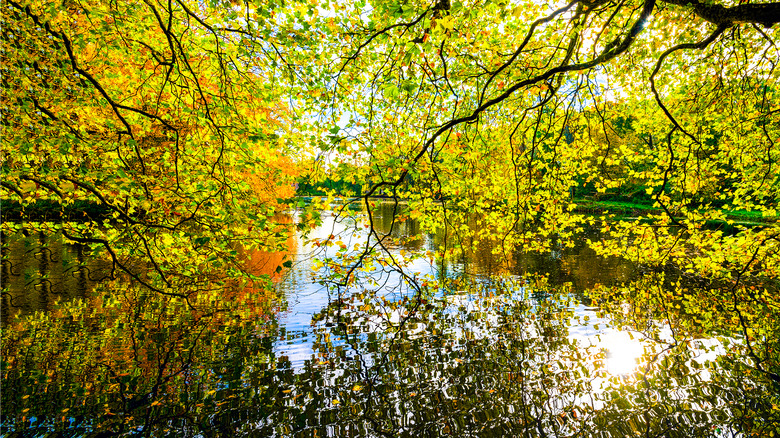Why Some Scientists Predict The Sun Might Turn On Earth's Plants
Plants need sunlight ... they have to get it so that they can complete the process of photosynthesis, which in turn helps give many living organisms, such as humans, some of the oxygen they need to breathe and survive. While it is important, they can also get too much sunlight, which can then cause damage.
Unfortunately for them, plants can't just up and move out of the sunlight. They have to stay there and simply absorb the rays. They do, however, have ways to protect themselves from getting damaged. One way is that they can create their own sunscreen of sorts. They can also get rid of the heat much faster than other organisms, according to ScienceDaily.
Going a bit more in depth, according to Science, is that they make something called zeaxanthin, which interacts with chlorophyll and helps get rid of the heat. Plants can regulate this by turning it off when there are clouds blocking the sunlight. So they can protect themselves by doing this process — but is there something coming that could make it even harder?
Unfortunately yes, and it is called climate change.
With climate change, there will be heat and not much rain
As the climate continues to change, there are going to be certain places that get even drier, which means that the plants will be subject to even more heat and sunlight. Plants need water, which they will get a lot less of, per National Geographic, and their protective measures will not be able to keep them safe from those rays. On one hand, there is more carbon dioxide in the air, which plants like, but the resulting harsh conditions wipe out any benefits.
It's not only the plants that are going to suffer — people are going to be in bad shape, too. That's because they won't be able to get staple crops like wheat, corn, coffee, and peaches, just to name a few, according to NPR. As climate change gets worse, then there are going to be colder parts of the world and there will be warmer parts ... which will remain warm for longer periods of time, which can be dangerous for the plants.
Can there be something that can save the plants? One solution, as mentioned by NASA, is to plant a lot more trees, which could then possibly mitigate the growing amount of carbon dioxide. It's going to take a lot of work and cooperation, but if it does work, then many plants could be kept from dying.

